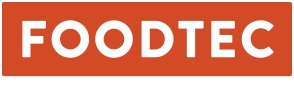18 months on, and Covid-19 continues to cause upheaval. For businesses, in particular those in the hospitality industry, they have faced ongoing restrictions of some sort. While the Summer offered some respite and a chance to make up for lost revenue, the rise of the Delta variant has trigged cities and states around the country to backtrack and reinstate restrictions. Once again, indoor dining features top of the list for mask mandates and vaccination requirements. As the industry struggles to keep afloat, a recent article featured on Fast Casual asks are these rules too harsh on restaurants?
Déjà vu: Delta variant see mandates reintroduced
Just as restaurants were getting back to some version of “normal”, the federal Centers for Disease Control (CDC) and other health experts are recommended that masking and proof of vaccination are required for indoor dining. The new guidance marks a sharp turnabout from the agency’s position since May that vaccinated people do not need to wear masks in most indoor spaces. The reason for the U-turn? The COVID-19 Delta variant.
The variant in question is deemed more contagious with transmission most likely to occur in crowded indoor public spaces where people may or may not be vaccinated – a scenario, they say, perfectly describes a restaurant environment. The new requirements, that included proof of vaccination rules and masks, are being recommended in an effort to protect consumers and curtail case numbers. However, restaurants believe they are being unfairly targeted by health orders – health orders that are causing additional stress and financial burden on an industry that has already been significantly impacted by the pandemic.
One major effect of the new requirements is that they’ve thrust the responsibility of enforcing public health regulations (once again) on restaurant operators. With The White House saying it will not establish a national vaccine passport system, businesses have largely been left on their own to figure out how to enforce the requirements. While some states, cities, and even private companies have built their own versions of vaccine passport apps, the checkered approach means many restaurants aren’t prepared to check vaccine documents or identification cards. In addition, restaurants have been left to deal with angry customers who push back on such rules – risking further loss of custom.
However, one of the biggest gripes restaurants have is why they are being asked to turn away good customers who are not vaccinated while other businesses face no such requirements. “Restaurants are in a tough spot being forced to police the issue for the city, and it seems unfair that certain industries are being singled out,” said Art Depole, franchise owner of a Mooyah Burgers, Fries & Shakes in New York’s Time Square “For example, 5,000 people can co-mingle in large retailers down the street from us with no masks and no questions asked about vaccines, and likely these retailers aren’t cleaning and sanitizing to the standards we hold to.”
The vast majority of business and restaurant operators acknowledge the significance of the mandates and want to prioritize the health and safety of both their staff and customers. Similarly, it is accepted that little about making decisions now is straightforward. But for restaurants, it starting to feel like a case of “one rule for one and one for another”. They duly feel they have been singled out. Many have invested a lot over the past year making their establishments coronavirus compliant, yet they continue to face new rules and regulations – while others of similar risk do not.
Everyone knows the quote “Life isn’t fair” – but in this scenario, unequally application / reintroduction of such mandates prolongs the struggles the industry has faced for months and makes it difficult to maintain financial stability.




